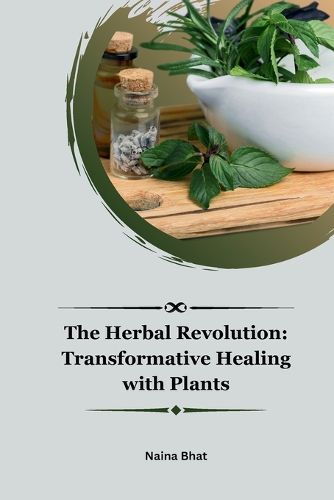Readings Newsletter
Become a Readings Member to make your shopping experience even easier.
Sign in or sign up for free!
You’re not far away from qualifying for FREE standard shipping within Australia
You’ve qualified for FREE standard shipping within Australia
The cart is loading…






This title is printed to order. This book may have been self-published. If so, we cannot guarantee the quality of the content. In the main most books will have gone through the editing process however some may not. We therefore suggest that you be aware of this before ordering this book. If in doubt check either the author or publisher’s details as we are unable to accept any returns unless they are faulty. Please contact us if you have any questions.
Phytotherapy, or botanical medicine, is another name for herbal treatment, which has been used for thousands of years. Many societies all over the world have a long history of using plants for therapeutic purposes. Throughout human history, the use of plants for healing has been prevalent among both indigenous groups and ancient civilizations. This summary will examine the historical foundations of herbal medicine as well as its development and social importance in many countries.
Historical Civilizations:
Herbal medicine has its roots in ancient civilizations, when knowledge of therapeutic plants was transmitted from generation to generation. Herbal medicines, for instance, were recorded on papyrus scrolls dating back as 1550 BCE in ancient Egypt. One of the earliest extant medical documents, the Ebers Papyrus, includes details on hundreds of medicinal plants that the Egyptians employed to cure a wide range of illnesses. Similar to this, the Mesopotamian Sumerians, Babylonians, and Assyrians had a long history of using plants for medicinal purposes, as evidenced by the clay tablets they left behind.
With origins spanning over 2,500 years, herbal therapy is greatly influenced by ancient China. One of the oldest Chinese pharmacopoeias is the well-known book "Shennong Ben Cao Jing," which is credited to Emperor Shennong. It is the cornerstone of traditional Chinese medicine (TCM), classifying hundreds of herbs according to their therapeutic qualities. Herbal medicines are still incorporated by TCM into its all-encompassing strategy for health and wellbeing
$9.00 standard shipping within Australia
FREE standard shipping within Australia for orders over $100.00
Express & International shipping calculated at checkout
This title is printed to order. This book may have been self-published. If so, we cannot guarantee the quality of the content. In the main most books will have gone through the editing process however some may not. We therefore suggest that you be aware of this before ordering this book. If in doubt check either the author or publisher’s details as we are unable to accept any returns unless they are faulty. Please contact us if you have any questions.
Phytotherapy, or botanical medicine, is another name for herbal treatment, which has been used for thousands of years. Many societies all over the world have a long history of using plants for therapeutic purposes. Throughout human history, the use of plants for healing has been prevalent among both indigenous groups and ancient civilizations. This summary will examine the historical foundations of herbal medicine as well as its development and social importance in many countries.
Historical Civilizations:
Herbal medicine has its roots in ancient civilizations, when knowledge of therapeutic plants was transmitted from generation to generation. Herbal medicines, for instance, were recorded on papyrus scrolls dating back as 1550 BCE in ancient Egypt. One of the earliest extant medical documents, the Ebers Papyrus, includes details on hundreds of medicinal plants that the Egyptians employed to cure a wide range of illnesses. Similar to this, the Mesopotamian Sumerians, Babylonians, and Assyrians had a long history of using plants for medicinal purposes, as evidenced by the clay tablets they left behind.
With origins spanning over 2,500 years, herbal therapy is greatly influenced by ancient China. One of the oldest Chinese pharmacopoeias is the well-known book "Shennong Ben Cao Jing," which is credited to Emperor Shennong. It is the cornerstone of traditional Chinese medicine (TCM), classifying hundreds of herbs according to their therapeutic qualities. Herbal medicines are still incorporated by TCM into its all-encompassing strategy for health and wellbeing